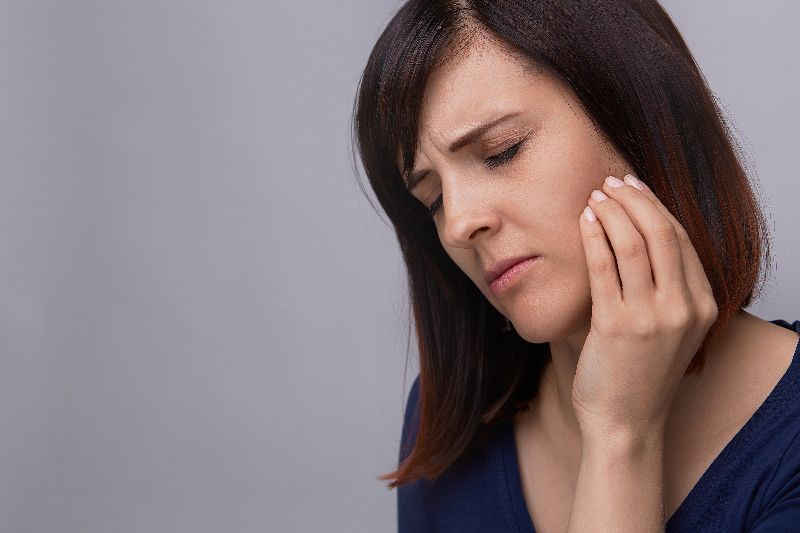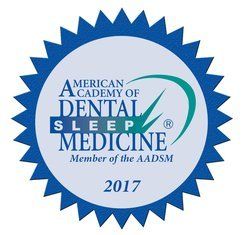Bruxism Treatment In The Woodlands, TX
Do you or a loved one suffer from bruxism (teeth grinding)? If so, you could be exposing your teeth, jaw, and connected muscles to damage.
Bruxism can occur in two forms: awake bruxism and sleep bruxism. Those who suffer from either or both of these conditions tend to clench, grind, or gnash their teeth unconsciously.
Persistent and severe bruxism can lead to numerous serious complications, such as damage to your teeth and jaw. Further, bruxism has been linked to other medical disorders, including sleep apnea or a related disorder and temporomandibular joint (TMJ) disorders.

You must contact a dental expert if you think you are experiencing bruxism. Dedicated orofacial pain specialists like Dr.Phillips can help diagnose this disorder and provide lasting treatment. Take a look at some of the common symptoms of bruxism below.
Signs & Symptoms Of Bruxism
As many as 33 percent of childrensuffer from occasional bruxism. While this condition is less common among adults, older individuals are actually more likely to suffer from chronic bruxism.
The most obvious sign is clenching, grinding or gnashing of the teeth. For example, you might be watching TV when you realize that your jaw is tight and clenched for no particular reason.
However, many people suffer bruxism while they are sleeping. This makes it more difficult to spot.
There are several other symptoms you should watch out for:
- Unexplained fractured, loose, chipped, or flattened teeth
- A dull headache that originates in your temples
- Increased tooth sensitivity
- Tooth pain
- Tight or worn jaw muscles
- Locked jaw or decreased ability to open/close jaw
- Pain when using your jaw
- Soreness in the jaw, face, or neck
- Wounds from chewing on the insides of your cheeks
Further, if you find yourself having trouble staying asleep, it may be due to sleep bruxism. Should you wake up in the middle of the night, check to see if you are suffering from any of the above symptoms.
Why Do People Grind & Clench Their Teeth?
Numerous factors and conditions can cause bruxism. Many people believe that teeth grinding is caused by stress or anxiety, as we tend to clench our jaws when stressed.
Certain medications, including some antidepressants, have been linked to bruxism. Parkinson’s disease, gastroesophageal reflux disorder (GERD), and epilepsy have also been linked to teeth grinding. Sleep apnea, itself a prevalent condition, has also been linked to bruxism.
Bruxism may also be a sign of something wrong with TMJ functioning. Misalignment, wear and tear, and other temporomandibular disorders may be causing you to grind your teeth or clench your jaw.
How Do You Know If You Grind Your Teeth?
First, watch for symptoms, including damage to your teeth and soreness in the jaw or teeth. Asking a sleeping partner or loved one is a great way to find out if you are also grinding your teeth. However, it’s essential to determine if the condition is chronic.
Also, look for comorbid conditions or conditions that often co-occur with bruxism. Sleep apnea is one such condition. If you regularly snore at night, you’re more likely to suffer bruxism.
Bruxism Prevention & Treatment Options
First, relaxation techniques may help if your bruxism results from stress or anxiety. Deep breathing exercises, yoga, and meditation, are great ways to reduce stress. However, bruxism is often the result of a sleep disorder or dental condition. As such, it’s best to seek professional help. A trained dental expert is in the best position to prescribe the appropriate treatment.
Sometimes, you may need to use a mouth guard or splint while you sleep. A dental expert can use 3-D imaging and other techniques to craft a mouthguard that’s a perfect fit.
If you are taking antidepressants, you must talk with a medical expert to see if they could be causing your teeth to grind. In some cases, muscle relaxers are prescribed to prevent your jaw muscles from tightening.
If your bruxism is causing other dental problems, such as chipped or cracked teeth, it’s also vital to have those addressed. If left untreated, a seemingly minor crack can quickly deteriorate, necessitating an expensive crown or other treatment.
Answering Your Bruxism Related Questions
-
How can you avoid bruxism?
Teeth grinding (bruxism) may be caused by stress and anxiety, an abnormal bite, or missing or crooked teeth. Regular exercise, avoiding caffeine, limiting alcohol consumption and smoking can help.
-
Is Botox® a safe treatment for bruxism?
Recent studies indicate that bruxism may be reduced with Botox injections into the masseter and temporalis muscles. However, since the FDA has not cleared Botox for the treatment of bruxism, it is an off-label use of Botox, and the results will likely be short term.
-
Can bruxism cause headaches?
Headaches are one of the many possible symptoms of bruxism. People who grind their teeth are three times more likely to experience headache according to the Bruxism Association in the UK.
-
Are bruxism and TMJ disorder the same?
Bruxism and TMJ disorder are separate conditions, but they are often linked together as bruxism often falls under the spectrum of a TMJ disorder diagnosis. Bruxism can cause or worsen TMJ disorder.
-
Is bruxism genetic?
Although the exact genetic connection to bruxism is unclear, a growing amount of research indicates that bruxism runs in families and is considered to be, in part, genetically determined.
Bruxism Resources:
Contact Dr. Katherine Phillips and Stop The Teeth Grinding Today
Contact Us
Thank you for reaching out to us at REstore TMJ and Sleep Therapy. We look forward to helping you. We will follow up within 24 hours for contact requests received during normal office hours Monday – Thursday. If you have submitted a request later in the day on Thursday – Sunday, we will follow up on Monday. If you would like to talk to us before we can get to your request, please feel free to give us a call at 281-296-6797 Monday – Thursday 8am – 4:30pm. Have a great day!
Regards,
Dr. Katherine Phillips and Staff
Please try again later.
REstore TMJ & Sleep Therapy P.A.
1001 Medical Plaza Drive,
Suite 200 | The Woodlands, TX 77380
281-296-6797
Dr. Phillips serves TMJ & Sleep patients in: The Woodlands TX | Spring TX | Conroe TX Tomball TX | Cypress, TX | Houston, TX | Kingwood TX | Humble, TX | Katy TX
© 2023 by REstore TMJ & Sleep Therapy | Terms Of Service & Privacy Policy | XML Sitemap
-2700x842-1920w.png)






